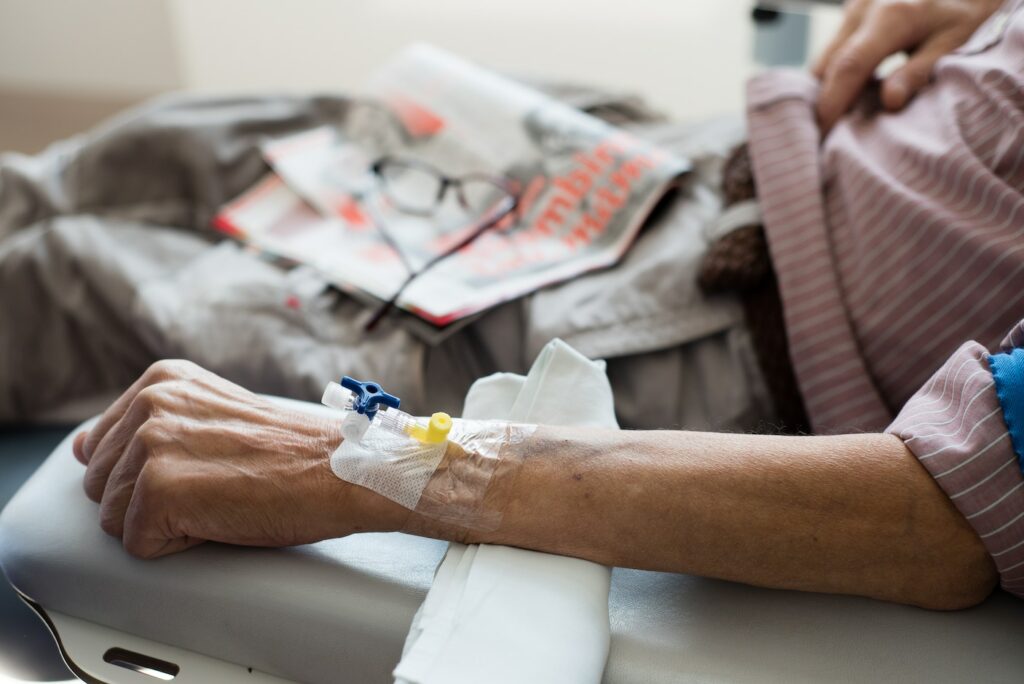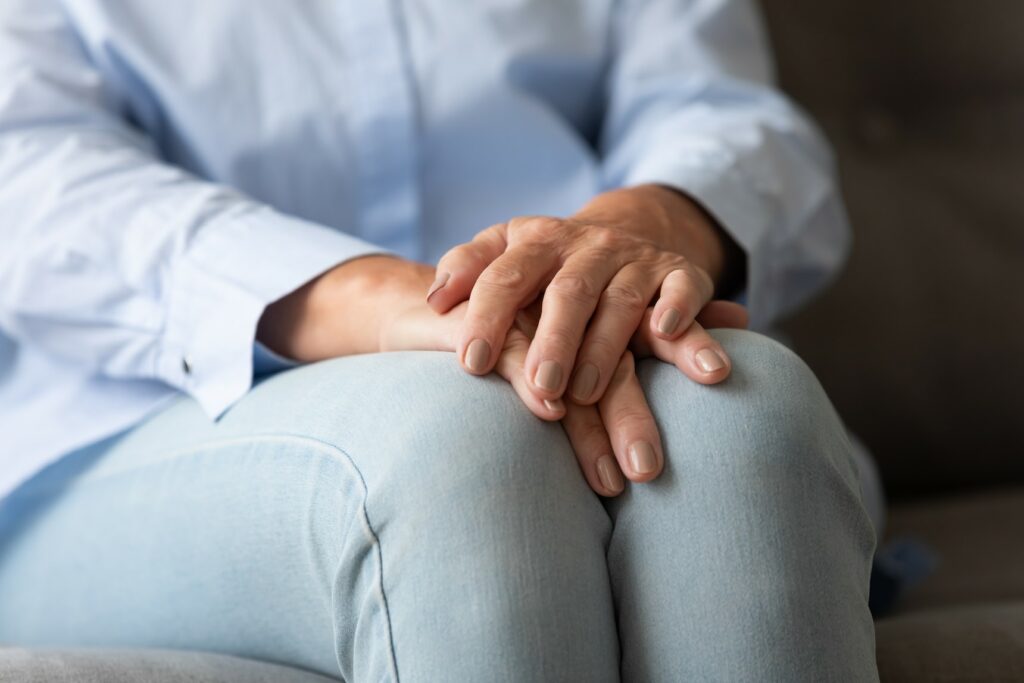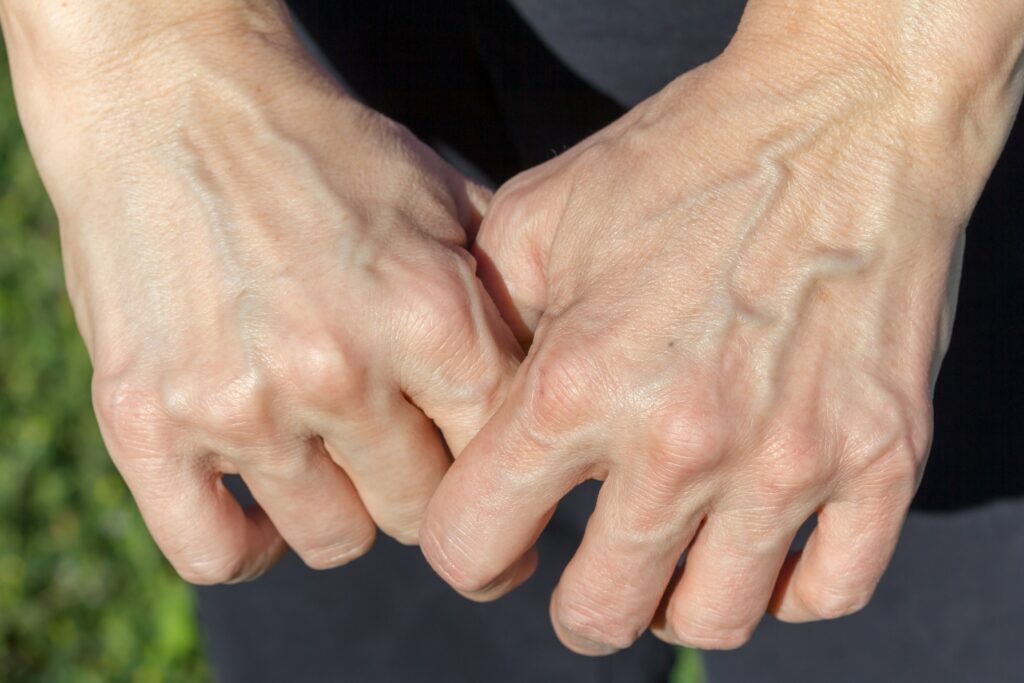Vein health is very important, not just for your general comfort and quality of life, but also for your overall health and wellbeing – and ultimately, your likelihood of enjoying an active, long life.
Did you Know? The adult human body contains more than 160,000 kilometres of blood vessels! These comprise arteries, veins, and capillaries, and form a vast, interconnected “super-highway” that transports oxygen, fluid, nutrients, immune cells, hormones, and other important physiological components to every cell in the body via the bloodstream.
While most people are aware of the issue of varicose veins, there are other types of venous disease. Some symptoms can be caused by underlying, non-varicose vein conditions, as well as other issues related to, but not the same as, varicose veins.
One example of this is collapsed veins.
What are Collapsed Veins?
Veins are the vessels that carry blood from the body tissues back to the heart. Unlike the more robust, thicker arteries, which must withstand much stronger internal pressure, veins have thin walls and are quite floppy. They contain one-way valves to prevent the back-flow of blood due to gravity.
A collapsed vein occurs if the vein is damaged such that the sides of it squeeze shut or fall in on themselves. This seals the vein.
Blood is no longer able to flow through a vein that has collapsed, and this lack of circulation to the region immediately adjacent to the vein will cause associated symptoms.
Collapsed veins may cause:
● Tingling
● Itching
● Numbness
● A cold sensation, especially in the hands or feet (depending upon whether the arms or legs are affected)
● Discolouration on the skin
● Leg cramps
● Swelling
● Restless legs
These symptoms are similar to many of those caused by varicose veins – however varicose veins signs and symptoms tend to be more obvious and troublesome for a lot of people.
What Causes Vein Collapse?
Vein collapse can be caused by different issues.
1. ARMS: By far the most common cause of vein collapse is in the arms, and this is a consequence of repeated injections. It is a common effect seen in people who require repeated or ongoing intravenous treatments (e.g., people undergoing cancer treatment, needing frequent blood tests, or other IV drug therapies) and in intravenous illicit drug users. It can occur when needles inserted into a vein to extract blood or deliver a medicine or other treatment cause the vein to become damaged, irritated, swollen, and/or inflamed. Minor irritation may occasionally cause temporary vein collapse, however, with persistent injury the collapse is permanent. It is a higher risk when using a needle that is too large or has a blunt tip; when the same vein is accessed repeatedly; when improper injection technique is used; or when medications that are injected irritate the lining of the vein.
2. LEGS: Chronic Venous Insufficiency (CVI) or having fragile, weak veins also increases the risk of vein collapse. This occurs due to chronic high blood pressure in the legs, often after a previous deep vein thrombosis. This can occur many years later.
Varicose veins, which are swollen and weak, can leak. This causes a blood clot to form at the site of leakage, as the body tries to heal itself. The vein narrows as the blood clot forms, and hardened scar tissue develops. This can restrict blood flow and cause the walls of the vein to heal shut – thereby blocking future blood flow through the vein.
Vein collapse occurs within the vein, rather than on its exterior. Unlike a varicose vein, which swells and bulges, a collapsed vein does not reveal itself on or through the overlying skin. A varicose vein that collapses will “disappear”.
(A “blown” vein is a different issue, caused when an intravenous needle passes through both sides of the vein, or when an injury causes a vein to rupture. This is quite common in people taking blood thinners like warfarin. This can lead to bleeding (often profuse) into the tissues and often severe bruising and swelling.)
How Does the Body Adapt?
If a vein collapses, the body will endeavour to find a new way to direct blood to the tissues it previously supplied. The circulatory system will automatically compensate by pumping the blood through smaller surrounding veins, which adapt and form new pathways for healthy, adequate blood flow. The blocked vein will eventually be reabsorbed into the body.
As a collapsed vein elicits new pathways for blood to flow, it can sometimes lead to the formation of new spider or varicose veins which may appear on the skin.
What Should I do About Vein Issues?
If you have any of the above mentioned symptoms that suggest vein disease, varicose veins, or vein collapse, see your GP or a vascular Doctor for a professional assessment and proper diagnosis.
You don’t need to live with unsightly veins or painful legs! Early diagnosis and treatment of varicose veins and/or CVI, as well as following varicose vein prevention tips to maximise the health and longevity of your veins, can make all the difference.
There is no specific treatment for a collapsed vein, however, diagnosis is important to understand any underlying issues and aim to prevent the future development of venous disease.
Treat Veins Effectively & Safely at Crows Nest Vein Clinic
Minimally invasive varicose vein treatments like endovenous laser ablation and sclerotherapy strive to intentionally collapse a diseased or damaged varicose vein. This works by closing off the vein, allowing it to be reabsorbed and enabling the body to heal itself and create healthier pathways for the blood to flow via undamaged veins. It is an effective way to eliminate unsightly veins on the legs and reduce the discomfort associated with varicose veins. You are never too young or too old to take control of your vein health!
Crows Nest Vein Clinic offers superior, world-class vein treatments which treat the underlying cause of varicose veins. We can help by improving the appearance of your legs, alleviating symptoms, and, minimising your future risks.
Visiting our clinic and consulting with Dr James for vein treatments does not require a referral from your GP and our vein treatments are eligible for Medicare rebates.
Contact us via our online contact form, or call (02) 9906 1555 or email [email protected].




